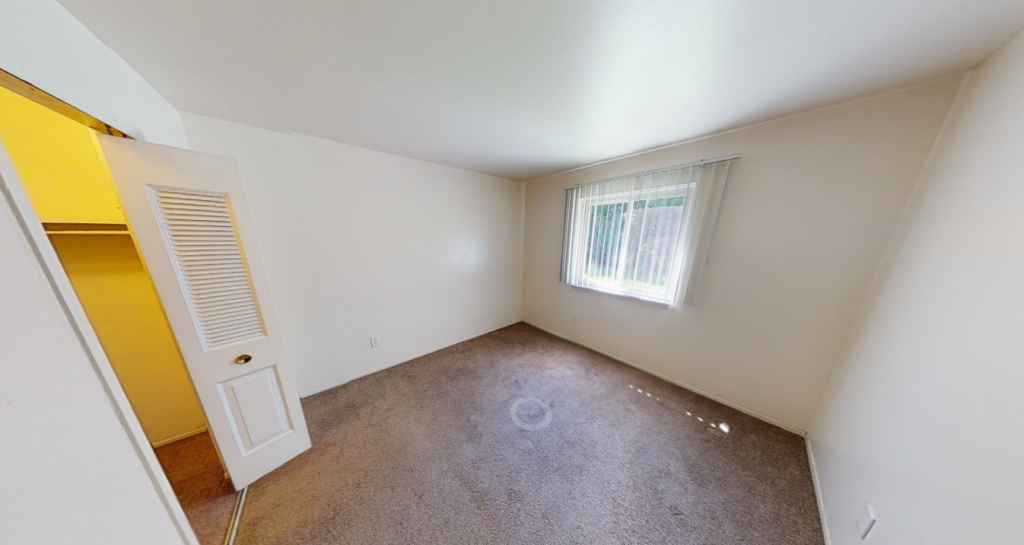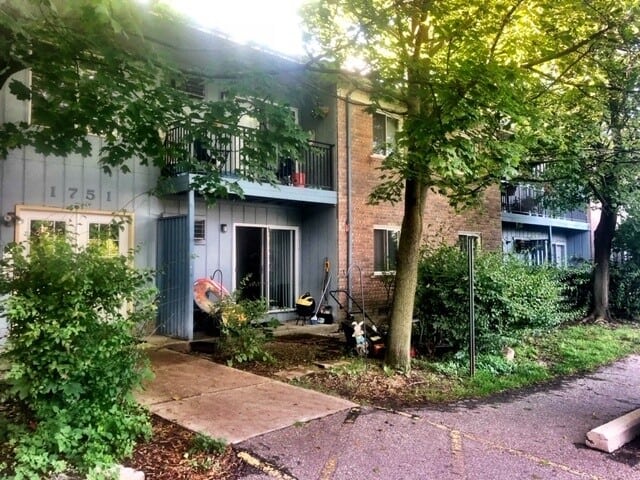Renting your first apartment is a significant step toward adulthood. Whether you are just starting out on your own or relocating from the dorms, there is a lot to consider while making this important decision.
In reality, it will be one of many important choices you will make as an adult. However, the process of renting an apartment is usually difficult and overwhelming for various reasons, with the most common being that many people are unaware of what to expect.
For example, worrying about where to reside, how much to pay for rent, and safety are all normal concerns. With that said, not only are there many factors for you to keep in mind when looking for a new place, but there are also many things to prepare for before and after moving in.
What to Expect when Renting an Apartment

Your level of preparedness determines the speed with which you can find an apartment. If you do not cooperate with the rental procedure, it may take longer than usual. For instance, prospects that have all of their documents together and ready, such as rental history, income information, and references, are more likely to be approved quicker.
In general, the purpose of a credit and background check is to guarantee that a prospective renter can pay rent on time, while also addressing any security concerns or potential imminent threats.
With that in mind, this article will cover everything you need to know and anticipate when renting an apartment. So, let’s dive in!
Typical Rental Application Process
For every unoccupied unit, there is a corresponding application packet available for the next potential tenant. This packet usually includes information about the unit, the landlord or property manager, and their leasing qualifications.
The information from the application is used to evaluate the applicant’s information and help the landlord determine whether or not they are a good fit for the community. Generally, the landlord will also ask questions about what you are looking for in an apartment and why you want to live there.
Let us take a look at what to expect when it comes to rental applications.
Application Fee
The rental application fee is common in any apartment building/apartment complex. This $25-$75 range fee typically covers the cost of processing and showing the unit to applicants. This fee can vary depending on the area you are looking at.
When you have got so many other bills to pay, it’s easy to forget about the rental application fee. However, don’t forget to factor in the apartment application cost while you are planning your budget.
Background and Credit Check: Prepare Your Personal Documents
The tenant screening process is standard practice when it comes to rental applications. For example, a potential tenant with a criminal record or no credit score/credit report may be ineligible for housing. As a result, before deciding whether or not to rent the home to a particular prospect, landlords will typically consider this information.
As a prospective tenant, make sure to prepare your documentation and be ready to provide any additional information needed to support your application. These are some of the documents that you should expect to provide:
● Rental history and references
● Personal references, i.e. employers
● Proof of income
● Identification
The bare minimum document requirements you can expect from a potential landlord/property owner are current bank statements, employer reference, photo I.D,. that is a passport or driver’s license number, previous landlord reference, and a current utility bill.
Security Deposit
Renting a place to live is a massive commitment, and you will be required to pay what is a security deposit for an apartment to move into your new property. The security deposit is a financial guarantee that renters will look after their property and adhere to the apartment lease agreement terms.
A security deposit varies per landlord, but many request a one-time payment followed by monthly rent payments. Typically, the security deposit is anywhere from one month’s rent a month and a half.
Renter’s Insurance
You may be thinking that you don’t need renter’s insurance because “nothing bad can happen to me.” However, when you take a look at the valuable items you have in your home, this may change your mind. What if you get robbed? What if your appliances or furniture break? You will be glad to have a renter’s insurance.
Typically, renters insurance covers your personal property in case of an accident or natural disaster. For instance, if a fire occurs in your rental and all the contents are destroyed, renters insurance can financially help you replace those items.
Pet Fee
You may have to pay a pet deposit when renting or leasing a new place with your pets. Pet fees vary depending on various factors, such as the size of the pet. It is typically all spelled out in the apartment pet policy, so be sure to review it. You should anticipate paying $100 to $500, on average, for your upfront pet cost. In addition, the monthly pet rent should cost between $25 to $100, on average.
Flats with pet-friendly features may be more expensive than identical apartments without pet-friendly amenities. So keep in mind the cost of monthly pet rent while on the apartment hunt.
Pet restrictions are a common thing in rental apartment living. Given the number of pet-friendly communities popping up, pet owners typically don’t have to fret about living without their furry and non-furry companions. However, when it comes to finding a place to rent, there are still plenty of restrictions on what type of pets are allowed. For example, the dog breed you have may be one of the breeds that are not permitted; as a result, learn how to read an apartment lease or rental agreement to find out about prohibited breeds.
Additionally, you should prepare for a pet interview, which most apartment communities/apartment complexes require in order to determine a pet’s aggressiveness prior to approval. As a result, make sure you have all of your vaccination information and your pet’s shots are up to date, too.
Administrative Fees
Since background screening typically takes time, the process of being selected for an apartment can be extensive and tiresome. This is why a property management company or a landlord frequently asks for administrative fees as additional costs to conduct credit and background checks on a prospective tenant.
If your application is denied, visit the leasing office and request a refund of your administrative fee, though many times this fee is non-refundable. For sure, however, if your application is accepted, the charge is certainly non-refundable.
Needing a Cosigner if You Have No or Low Credit
If you are a first time renter, you may need to provide a cosigner to qualify for the lease. A cosigner is someone who agrees to take responsibility for your rent if you don’t pay it on time. Sometimes, landlords make a cosigner necessary as part of their application requirements for a first time renter. Having said that, you may want to ask a friend, family member, or relative to be your cosigner if you are applying for your first apartment.
How Long Does Approval Take?
Expect your application to take one to three days, on average, but it’s always a good idea to inquire about the length of time it takes the landlord to process it. This is because a variety of factors determines the length of time it takes to process an application. For instance, if a unit has not been filled in a long time, for example, the landlord may be more eager to fill it as soon as possible. Another reason is that verifying the credit history and background checks may take longer than usual.
Things to Think About Before Renting Your First Apartment
Renting an apartment can be stressful, particularly if you are unprepared. However, if you are familiar with the rental process, the task will be much easier than you anticipated.
Here is what you should know before renting an apartment:
Think About the Location You Want for Your Next Home
Narrow down your apartment search by choosing the right location to find your next apartment. For example, do you want an urban or a more suburban area?
Websites to search apartments in Keego Harbor, MI such as Craigslist and Zillow, offer apartment complex listings nationwide. So, once you have narrowed down your general location, look at the photos of the apartments available on these sites to see what is most appealing.
Your choice of location should be based on proximity to commercial centers, public transportation, or picnicking areas, among other things, unless you don’t mind going a long distance to buy or get general conveniences, such as medical care.
Buy What You Actually Need: Avoid Impulse Spending
The joy of being free of your parents’ constraints should not distort your judgment. Renting an apartment comes with its own set of expenses (upfront costs), so focus on the necessities first and worry about the rest once you have moved in.
For example, focus on essential items like mattresses, cooking appliances, and bed sheets. Other items, like wall art, can wait for later after moving in and getting settled.
Today, consumer culture has conditioned us to believe that the more we buy, the happier we will be. This leads to impulse buying, which can lead to increased levels of debt and unhappiness. Having said that, create a solid budget before going apartment hunting, and stick to it.
Decide Roommate or No Roommate
Sharing an apartment with one other person is common among millennials and those just starting their careers. This arrangement has many benefits, including a more manageable living expense, the ability to afford in-demand neighborhoods, and the ability to be part of a community.
With that in mind, decide whether or not you will share an apartment. If you decide to live with a roommate, make a list of all the rules you and your roommate must follow or help you cohabit.
Have a Move-In Plan
Moving into your first apartment is not always as easy as it may seem. It requires a lot of planning and preparation, but it can be done. If you have many items to move and no friends or family to help you with the process, it might be worth your time to hire professional movers.
The best way to find the perfect apartment mover is to ask for referrals from friends and family members. Also, you could visit online sites and check their ratings before engaging the moving company. Do the same to several companies and create a shortlist of potential movers, then contact them for estimates, compare prices, and choose one that you believe is best.
Creating a Budget
It is easy to overlook budgeting (upfront cost and other living expenses) until you notice your money account has depleted beyond what you believed was necessary for the rental procedure. Often, this happens because you fail to have a clear budget in the first place. Typically, tracking or accounting for every dollar will be difficult, but it can be much easier with a plan.
As a result, make a budget and include every significant item of expenditure. For example, think about the first month’s rent, security deposit, application fees, among other possible fees to incur, and start adding them all up to paint a clearer picture.
Apartment Organization
Not every apartment has enough storage space or a large walk-in closet. So consider where and how you will place your belongings. Depending on the size of the flat, plan on purchasing multi-functional furniture to conserve space and provide extra storage units for your belongings.
What is the Best Time to Look for Apartments?
While there may not be one answer that is “one fits all,” the best time to move is during off-peak months if you are looking for cheaper rentals, or during the summer months when the school/college students are on holiday.
Due to the typical school calendar, moving during the winter months can be hard for families with school-aged children. Furthermore, there are fewer rental alternatives because less people move at this time of year. With that said, since rent prices are frequently low during the winter months, if there are any new 1-bedroom apartments for rent in Keego Harbor, MI or 2-bedroom apartments for rent in Keego Harbor, MI, the landlord will be more willing to negotiate a reduced rent to fill the space.
You can save money on logistics if you move during the winter months. Logistics companies compete for clients because fewer people are moving during the winter, and costs fall as supply outstrips demand.
What Credit Score is Needed for an Apartment?
So, what credit score do you need to rent an apartment? Landlords or property managers frequently request a minimum credit score for approval when renting an apartment. With that said, aim for a credit score of 620 or above to be safe. A good score often means to a landlord that the applicant is good with personal finances. A higher credit score also entitles you to better mortgage terms, such as lower interest rates and a greater loan amount.
How Much Money Do I Need to Rent an Apartment?
According to a standard rule of thumb, rent should not be more than 1/3 of your monthly income. For example, if you earn $6,000 a month, your rent should not go past $2000. So, how much rent to pay should fall within this guide for comfortable financial sustainability.
Before rushing to sign lease agreements, plan your monthly rent and other essential costs for a happy life. When you don’t budget, you are more likely to buy on impulse, then when your money runs out, you will be unhappy.
Final Thought
Due to the duration of the process, moving to your first apartment may be both exhilarating and stressful. With that said, the key to a seamless relocation is proper planning and understanding of the process.
If you are going on an apartment tour, do not only go during the day; consider going at night during quiet hours to see if the neighborhood respects your need for solitude.









